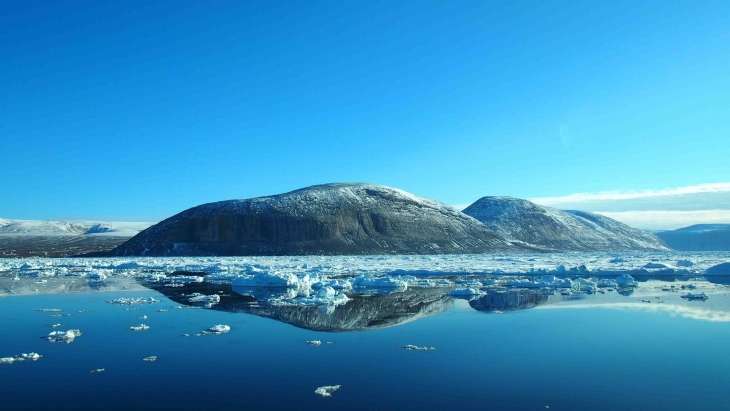Unfussy bottom feeders show resilience to climate change

A study by scientists at the University of Aberdeen has found that invertebrate life in the deep Arctic Ocean is more resilient to the effects of climate change than previously thought.
The shrinking sea ice cover in the Arctic has led to fears that the associated loss of ice algae - tiny algae growing in large numbers in and under the ice - would pose a serious risk to deep sea invertebrates such as clams, crustaceans and polychaete worms, that rely on them as an important food source.
However, research carried out in the Canadian Arctic has found that the creatures will happily feed on phytoplankton as an alternative food source, despite previous research suggesting a preference for ice algae.
The study, which has been published in the Marine Ecology Progress Series (MEPS) journal, was co-authored by Anni Mäkelä and Professor Ursula Witte from the University's School of Biological Sciences, and Professor Philippe Archambault from Laval University in Quebec.
Professor Witte said: "Arctic deep sea seafloor communities rely on ice algae and phytoplankton sinking from the surface waters for food.
"Summer sea ice loss is predicted to increase phytoplankton but reduce ice algal production, but ice algae are a higher quality food source and reach the seafloor communities earlier in the year when other food is scarce.
"Previous research has indicated that the animals preferentially eat the high quality ice algae, which would make them very vulnerable if this main food source was lost.
"However, by feeding the deep-sea fauna of the Canadian Arctic with both ice algae and phytoplankton, we have been able to show that they will happily feed on both, with no group exclusively preferring ice algae.
"Our research shows that Arctic deep sea animals are more resilient to changes in their food supply than previously thought – an unexpected finding that suggests they are adaptable to the challenges imposed by climate change."
More information: A Mäkelä et al. Ice algae versus phytoplankton: resource utilization by Arctic deep sea macroinfauna revealed through isotope labelling experiments, Marine Ecology Progress Series (2017). DOI: 10.3354/meps12157
Journal information: Marine Ecology Progress Series
Provided by University of Aberdeen



















